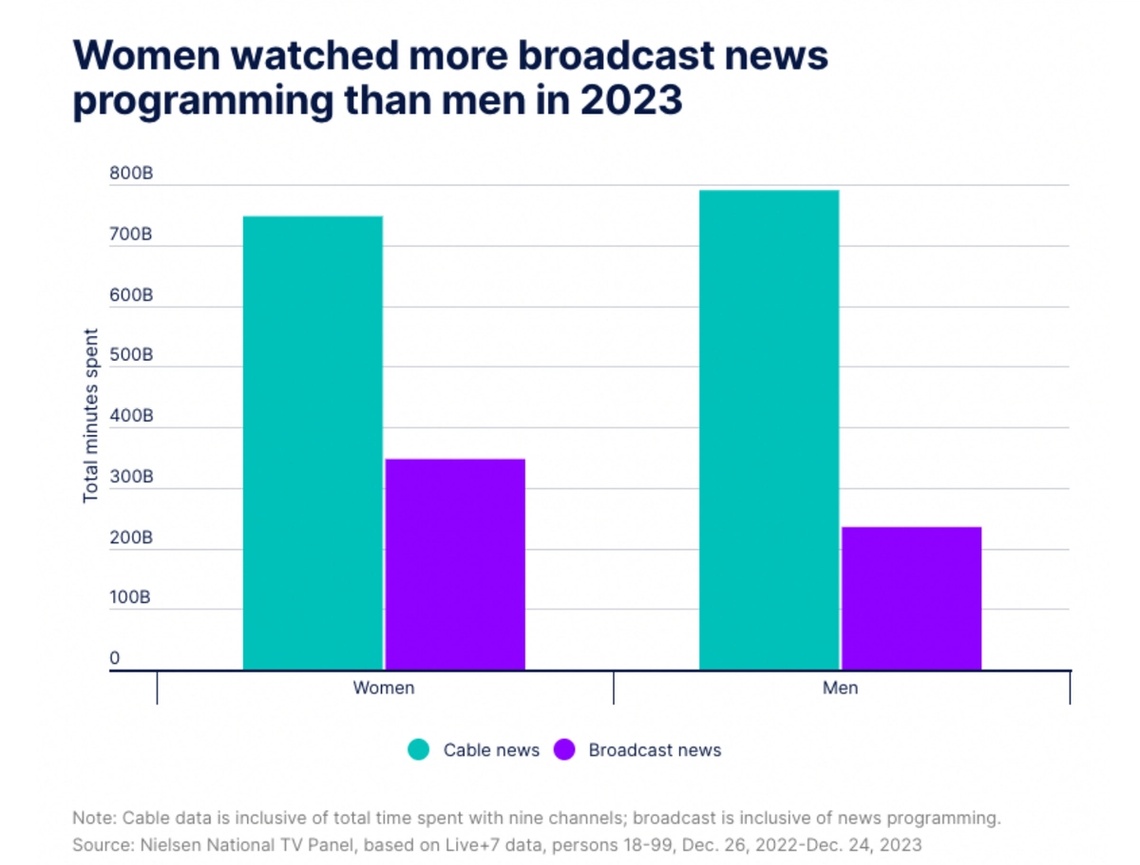 ⁜ TechBurn Book: Our Semaforum Q&A this week is with Kara Swisher, who has a new book out.  Simon & Schuster Simon & SchusterBen: Because you ignored my email the other day to send me a PDF, I had to buy [“Burn Book”] on Kindle. I found it, but I also found “Kara Swisher: Silicon Valley’s Bulldog,” and “Kara Swisher Book: How She Became Silicon Valley’s Most Influential Journalist,” and “Kara Swisher Biography: Unraveling the Life and Legacy,” by a ‘guy’ who ‘wrote’ four biographies this month. Kara: There’s a particularly femme-y version of me on the cover, a little porny. These AI versions of me are the way my mother would like me to look, I guess — earrings and too much makeup. I realized this is generative AI. It’s sort of like Gucci, they’re knockoffs — except they’re in the Amazon store, not outside on the street. I wrote [Amazon CEO] Andy Jassy and I said, ‘You’re stealing my IP! What is going on?’ [And] now they’ve started taking them down for me, but it’s all over Amazon. And it’s all over Google. Bad News: Facebook is finally, truly killing the news tab, once an olive branch — and cash sluice — to publishers. But not so fast: Australia may sue. ⁛ News Who’s watching? New data set to be released tomorrow from Nielsen makes the case that advertisers — particularly political ones — should see TV news as a fruitful target. One interesting note: Women still consume more broadcast news than men, while men consume slightly more cable. Wong v. Rubenstein: In other New York Times news, the paper is still seeking a correction or clarification from the Atlantic over a section of former opinion staffer Adam Rubenstein’s recent account of perceived ultra-progressive bias at the Times. The paper disputed various elements of the story, which springs from Rubenstein’s role in a contested 2020 op-ed by Arkansas Republican Sen. Tom Cotton. But it took particular issue with a paragraph that singled out diplomatic correspondent Edward Wong. Rubenstein cited an email from Wong in which he said he typically chose not to quote Cotton in his own stories because the senator’s comments “often represent neither a widely held majority opinion nor a well-thought-out minority opinion.” Wong expressed his frustration on Twitter, saying Rubenstein took his email out of context. A copy of the email reviewed by Semafor shows that Wong has a point, and wasn’t trying to dismiss Cotton simply for having a hawkish position on China. In the email, Wong advised colleagues to consult a different — in his view, better-informed — Republican hawk. “I was just telling someone earlier today that I often choose not to quote Cotton in stories I write on China b/c his comments are done solely for the purpose of flame-throwing and don’t add anything constructive or add anything that makes you see things in a new light,” he wrote in the email. “They often represent neither a widely held majority opinion nor a well-thought-out minority opinion. By contrast, his Senate colleague [Marco] Rubio, another GOP hawk on China, makes comments on China that are often much more substantial and not purely trollish.” The Times also sent notes to the Atlantic soliciting a correction or update to include the full context of Wong’s email. The magazine has stood by Rubenstein’s reporting, saying the email was cited accurately. Biden on the record: Evan Osnos remains one of the only journalists that Joe Biden will speak to at length on the record. During his time as president, Biden has largely declined major longform interviews with print publications and television networks, preferring to answer questions shouted during press gaggles or off-the-record conversations with his favorite New York Times opinion columnists. But New Yorker editor David Remnick teased on Friday that Osnos had recently traveled to the White House for a “rare, frank” talk with the president about his re-election campaign. Old news: With present-day news organizations dropping like flies, you can console yourself in the graveyard of newsprint: OldNews.com, a new website from genealogy platform MyHeritage that “offers access to thousands of historical newspapers, mainly from the 1800s and 1900s.” ☊ AudioLosing downloads: Earlier this year, Semafor reported that an update to Apple’s iOS significantly reduced the downloads for almost all major podcasts, particularly those with long back catalogs. Onstage at the Hot Pod Summit last week, “This American Life” host Ira Glass confirmed that his show was among those hit hard. Glass said that the show’s audience shrunk 20% because of the update, and acknowledged that although he was happy to have a more accurate audience number, he was still getting used to telling people that the number of weekly downloads for the show is 3.5 million instead of 4.5 million. “I’m in favor of accuracy,” he said. “I’m not in favor of losing money.” Making money: Podcasting is increasingly a world of haves and have nots. Despite a brutal year of downsizing in the industry, the biggest podcasters, like Joe Rogan and the Smartless guys, have still managed to sign major deals. while others, like Alex Cooper and the Kelce Brothers, are reportedly seeking major paydays in the tens and hundreds of millions when their contracts are up this year. ✰ HollywoodGhost TV: AP media writer David Bauder noted last week that TBS, TNT, History, Lifetime, FX, A&E, BET, E! Entertainment, SyFy, Comedy Central, VH1 and Discovery “have all lost at least half of their 2014 audience.” Their programming is now “big blocks of reruns” punctuated with “cheap and cheesy nonfiction.” He concluded by coining a new phrase: “That’s not appointment TV. It’s accidental. Ghosts.” Movies! Mark Harris set out to write about how Hollywood is (as usual) dying, but his conclusion was surprisingly cheering: “Hollywood is looking at and buying and even making plans to produce a bunch of scripts that can get off the ground fast and be cast, shot and edited reasonably quickly. … These are self-contained films that don’t demand moviegoers have a Ph.D. in previous installments or extended universes. They’re the kinds of films you might sometimes wish Hollywood made more of. Maybe you remember them. They’re what used to be called movies.” ✦ Marketing Mostafa Bassim/Anadolu via Getty Images Mostafa Bassim/Anadolu via Getty ImagesCritical mention: Biden supporters and critics both declared victory after last week’s Democratic presidential primary in Michigan, which pitted the president against a symbolic “uncommitted” vote meant to signal disapproval of the president’s handling of the war in Gaza. Allies of the campaign noted that over 100,000 Democrats had ultimately voted uncommitted, representing a huge margin in a must-win state for Biden in November. Biden overwhelmingly won the primary, despite huge media attention in the state garnered by the uncommitted campaign. Democratic paid media consultants with ties to the Biden campaign shared their informal analysis with Semafor. It showed that, excluding primary day, the total publicity value for the uncommitted campaign in Michigan was $2.5 million over the last two weeks. That’s a huge sum, close to the budget of a congressional campaign over the course of eight or nine months. But some primary voters always remain uncommitted, and despite the buzz, this year’s uncommitted tally was only marginally higher than in 2012, when no such concerted campaign had materialized. Biden allies interpreted that showing as good news. Social media money: The ad trade Campaign US reports that Meta — the owner of Facebook, Instagram, and now Threads — has hit record revenue from its ad business, while TikTok’s still-impressive engagement is declining a bit and X keeps cutting prices. ⁋ PublishingLike a… Rolling Stone is raising the bar for its use of anonymous sources, according to our own anonymous source familiar with the change. Leadership at the legacy magazine had been frustrated with what it believed was the overuse of anonymous sources in stories run under Noah Shachtman, the former top editor who left the publication this week following editorial differences with CEO Gus Wenner. The publication is also turning back the clock. While magazine cover stories during Shachtman’s tenure tended to focus on new artists, following his departure, the magazine has kicked around the idea of putting aging rock legend Bruce Springsteen back on its cover. Video investment: Recurrent Ventures, the Miami-based company which operates over a dozen digital media sites, is going all-in on YouTube. Popular Science will launch a new YouTube channel on Wednesday with Vsauce2, Semafor has learned. The long running science site, purchased by Recurrent in 2020, will collaborate with the science and tech-focused creator channel, which has built a following of over 4.5 million subscribers. The move is a part of a broader expansion into video centered around YouTube, where the company’s sites have a large audience. Recurrent also plans to launch a channel for military news site The War Zone, complementing the over 1 million YouTube subscribers for Task & Purpose, another Recurrent site. The company has also built sizable audiences on YouTube for its car content: Donut has over 8 million subscribers, and The Drive has nearly 2 million. Future of future of work: The FT and Bloomberg both invested in the media startup Charter, founded by Kevin Delaney to cover fast-changing workplace issues. Delaney and the FT’s Matt Fottrell were among the guests last year at the new media confab OTR, which is clearly on its way to becoming the next Sun Valley.
Corrections: The Atlantic did, in fact, respond to complaints from the New York Times. And Gus Wenner is the CEO of Rolling Stone. We regret the errors. | 









